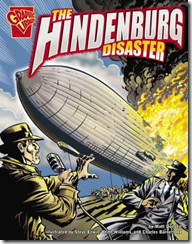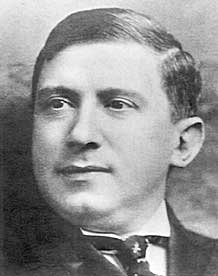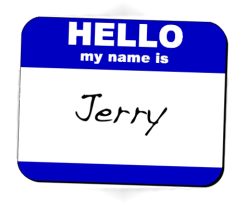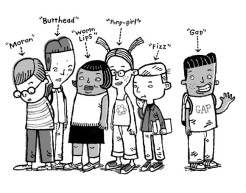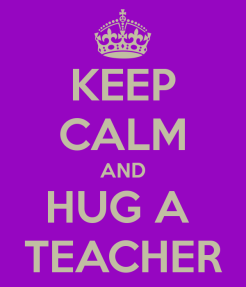Before you begin reading this, please know that this post reflects the culmination of fifteen years of teaching and does not pertain specifically to anyone who I work with in my profession at this time. The thoughts and observations contained herein reflect the broad spectrum of my experiences as a teacher and as a parent who has interacted with teachers. It is in no way an indictment of the friends and colleagues with whom I currently share my working life.
It should also be noted that while I am about to proselytize about the public relations of teaching, I am not without fault. But when it comes to promoting the work that takes place within the walls of my classroom, I like to think that I do an above average job, but I am hardly perfect.
Could I do better? Certainly. And I try like hell to be reflective about the decisions I make.
With all that said:
Teachers are rarely adept at public relations. As public support for teachers and their unions wane, too many teachers have little or no sense of the image that we project onto the public, and more important, the ramifications that this image can have on the future of education.
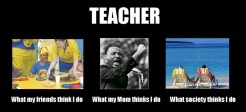 While teachers are partially to blame for this failing, colleges and universities do little by way of training teachers on how to effectively work with parents and the community at large in order to promote learning that takes place in the classroom and project a positive image of public education.
While teachers are partially to blame for this failing, colleges and universities do little by way of training teachers on how to effectively work with parents and the community at large in order to promote learning that takes place in the classroom and project a positive image of public education.
It makes no sense.
As a result, teachers are often ineffective when it comes to promoting themselves and the work that they do. They tend to be quiet, overly humble, and tragically understated when the opposite is needed in today’s climate.
This is why they become easy targets when budgets tighten and cuts are required. We must become more effective at promoting the important work that we do.
A few examples:
EXAMPLE #1
A friend of mine in Rhode Island teaches at a school that celebrates the end of standardized testing with Movie Day, a school day in which students spend most of the day watching G-rated films and relaxing.
Movie Day?
In the mind of many taxpayers, this sounds more like Give The Teachers A Day Off Day or Let The Chinese Continue To Surpass Us In Education Day. Even though I am certain that the teachers in his school are spending their time preparing lessons, grading papers, analyzing assessment data, and managing behaviors, Movie Day will never be viewed as an academically meaningful day by the average taxpayer.
Nor should it.
Movie Day must go. Kids go to school for 180 days a year. The last thing they need to do is spend a day watching movies. They can use the other 182 days in the year to catch up on the latest films.
Even if it’s somehow educationally justifiable, it’s bad PR.
No, it’s immensely stupid PR.
EXAMPLE #2
One of the largest educational initiatives currently in play in Connecticut and around the country centers on a program called SRBI, an acronym which stands for Scientific Research-Based Interventions. These are the teaching and assessment strategies and data driven decision making processes that educators are now using to target struggling learners in our classrooms.
But did you notice the name of the program?
Scientific Research-Based Interventions.
What the hell were the designers of this program thinking?
Were they trying to imply that everything that educators have done prior to SRBI was fly-by-the-seat-of-our-pants guesswork.
What were teachers using prior to SRBI?
MUSASIIW? (Make Up Stuff And See If It Works)
Hardly.
There has been mountains of scientifically-based research conducted in the field of education for decades. Centuries, even. The last thing we need is an intervention system with a name that implies otherwise.
Do you see Apple implementing a new MAPS program? (Mathematically Accurate Programming Strategies)
Or Aetna implementing PLIP? (Profitable, Legal Insurance Practices)
Or Disneyworld implementing FADS? (Fun Absent Dangerous Scenarios)
Of course not.
Yet our brand new program of learning interventions has a name that unnecessarily emphasizes the fact that some jerk just didn’t make it up in his head.
Stupid.
EXAMPLE #3
In my experience as a parent and as a teacher, I have encountered teachers who build enormous walls of faux-professionalism between themselves and parents, thus preventing our most potentially vocal and supportive constituents from gathering the positive information that we should be disseminating out there on a daily basis.
These are the teachers who feel that parents should be seen and not heard.
You can usually identify these teachers by the following characteristics:
- They never learn the first names of the parents of their students.
- They make only token attempts (or not attempt at all) to get parent volunteers into the classroom (one of the best ways to promote the good work done by teachers)
- They dress exceedingly formal for meetings with parents but considerably less formal when interacting with students (as if parents aren’t fully aware of the shifty nature of their wardrobes)
- They assume that they are always right and make no room for the possibility that parents might know more than they do when it comes to education.
For years I was told by parents that I would become an even better teacher once I had children of my own, and that not having children caused me to have a blind spot in terms of the parent-teacher-student dynamic. I always assumed that this was not true, but I left room for the possibility and told these parents as much.
It turns out that I was wrong and the parents were right. I am a much better teacher now that I am a parent, and I would venture to guess that this applies to almost everyone in the education field.
Having a child of your own provides you with an indescribable perspective that is incredibly useful as a teacher.
But until you have kids, it’s almost impossible to see.
As a teacher, you need to be smart enough to account for this possibility, and more importantly, for the possibility that the untrained parent of one of your students might know more than you do and can be exceedingly helpful in the education of their child.
Some teachers understand this. Others prefer to assume that they are the experts and should assume the position of ultimate authority.
This is foolish, and it projects an image of a profession filled with close-minded, unapproachable people.
Colleges, universities and school systems would be wise to begin instructing teachers on how to promote the work that they do. The same public relations and publicity professionals who work to enhance the image of businesses, corporations, entertainers, and even authors must also be utilized in enhancing the image of the teaching profession.
We must learn how to reach out and engage the public in the work we do everyday. So many remarkably skilled educations work tirelessly in order to help children learn, and yet so much of this good work goes unnoticed by the public at large.
If we want our public schools to be adequately funded and our profession to be respected, we must begin to do the hard work that is required in order to let people know who we are and what we do.


